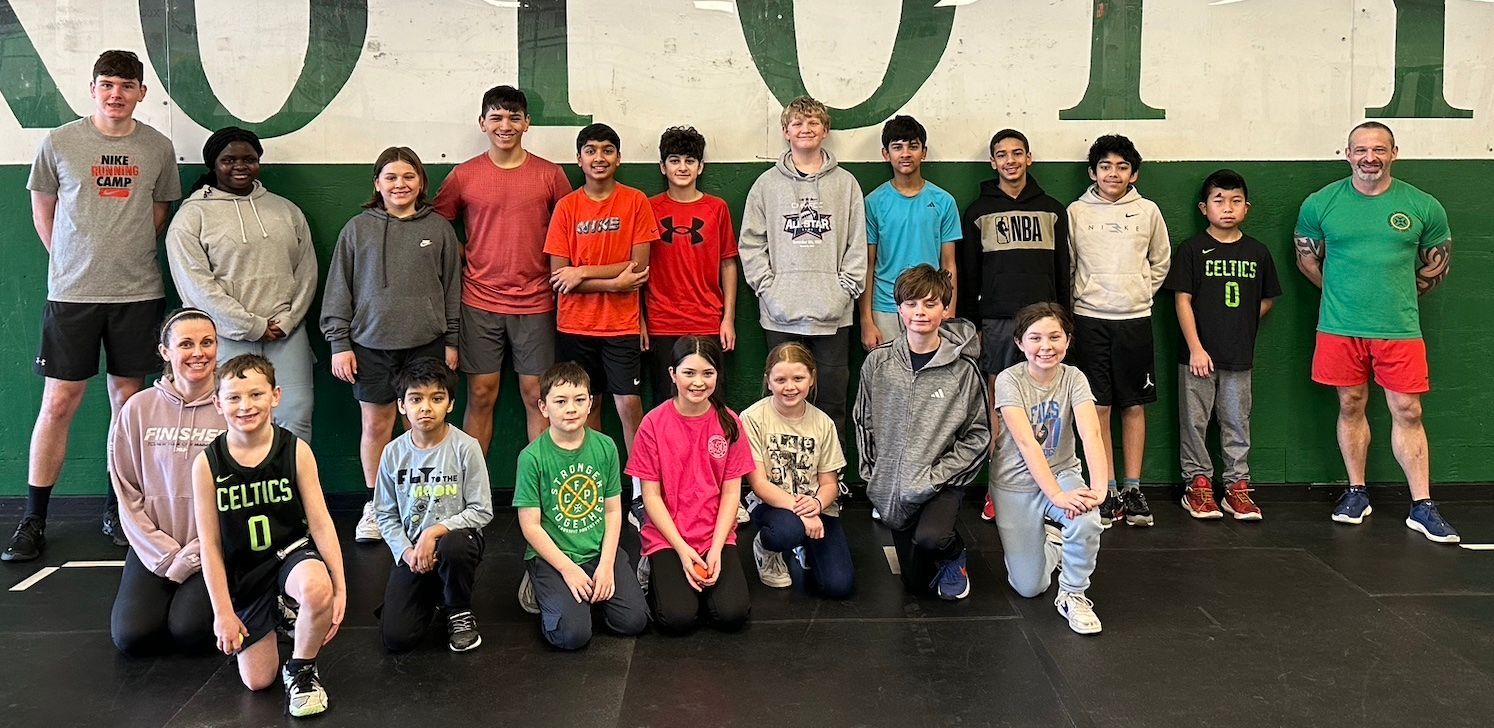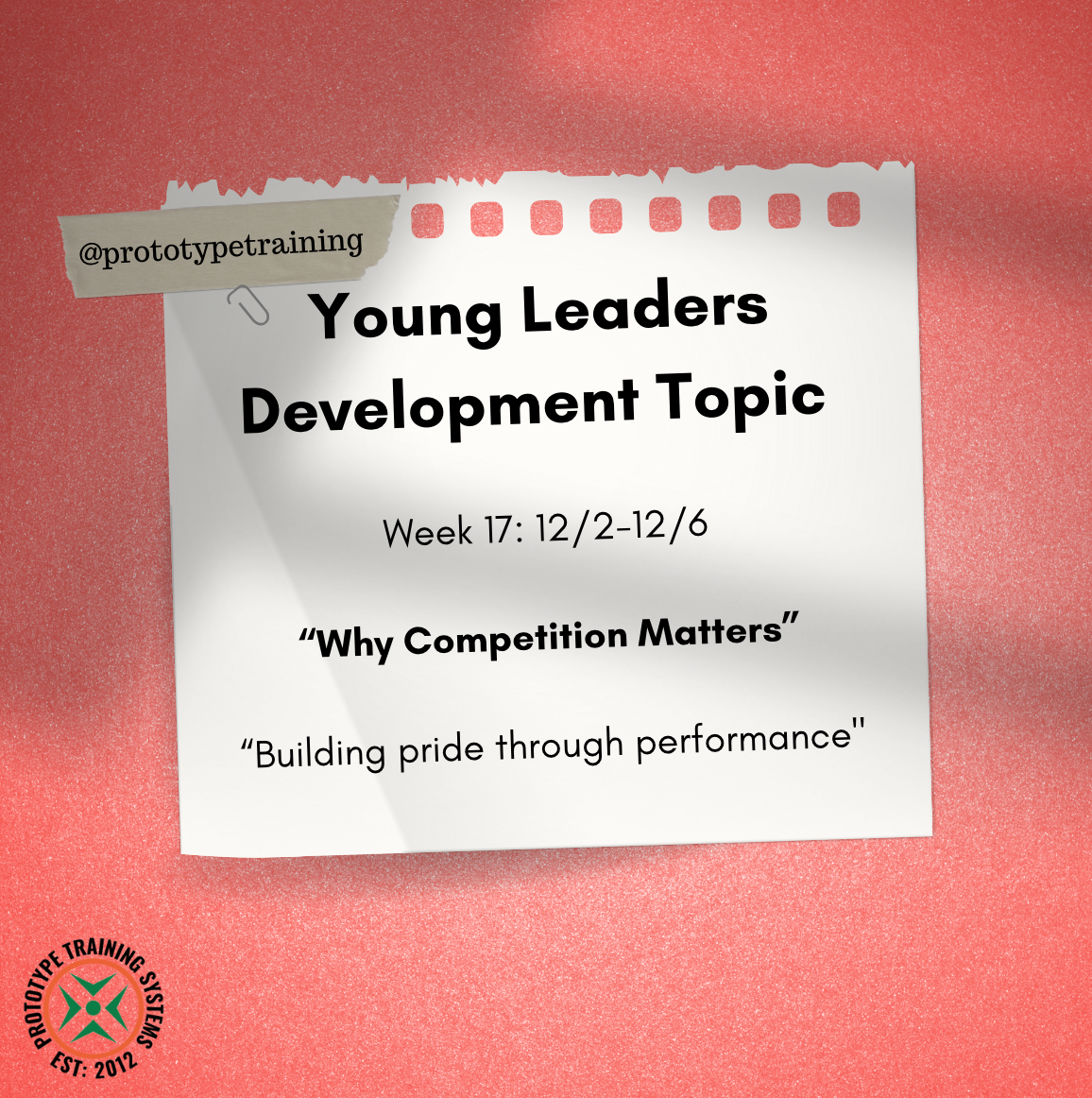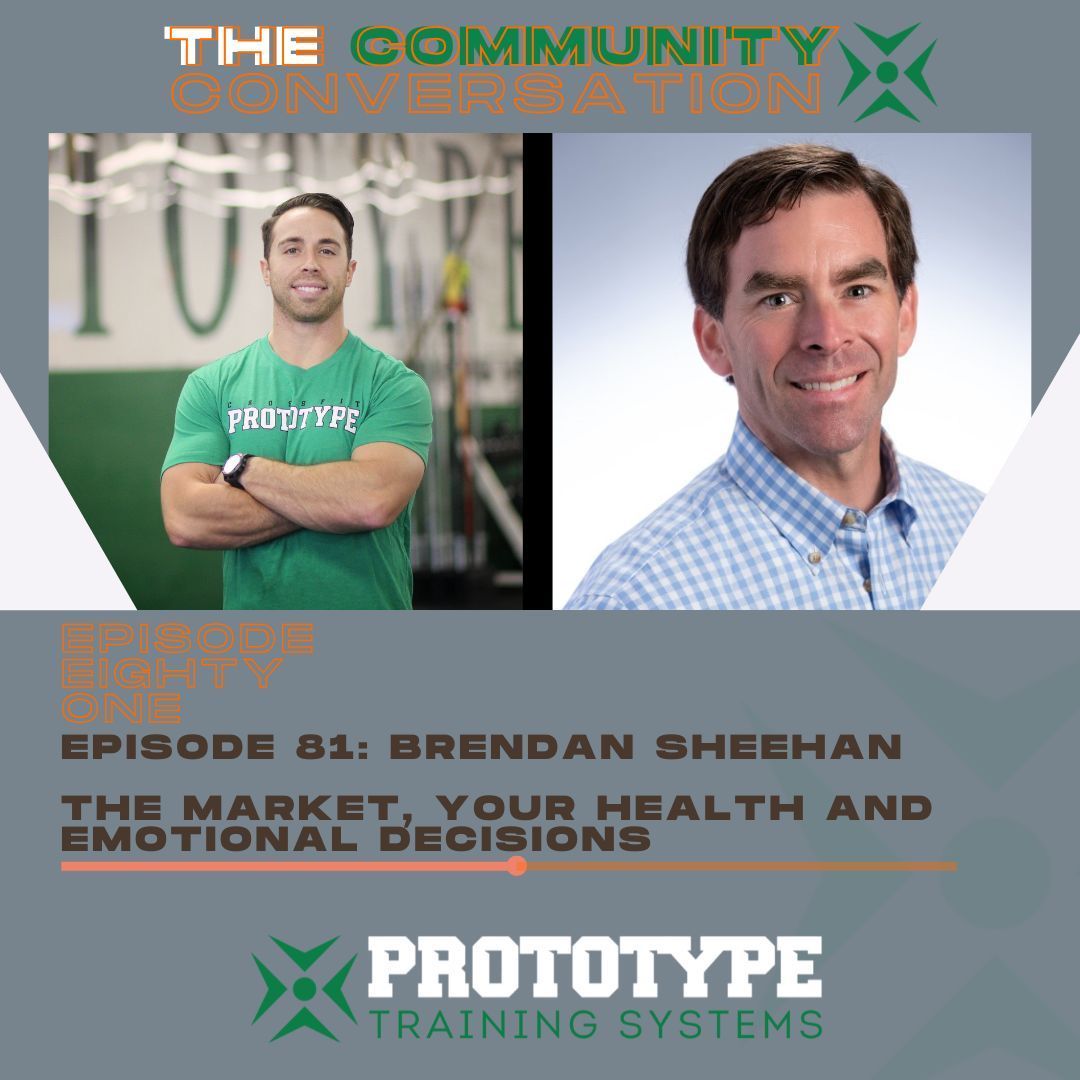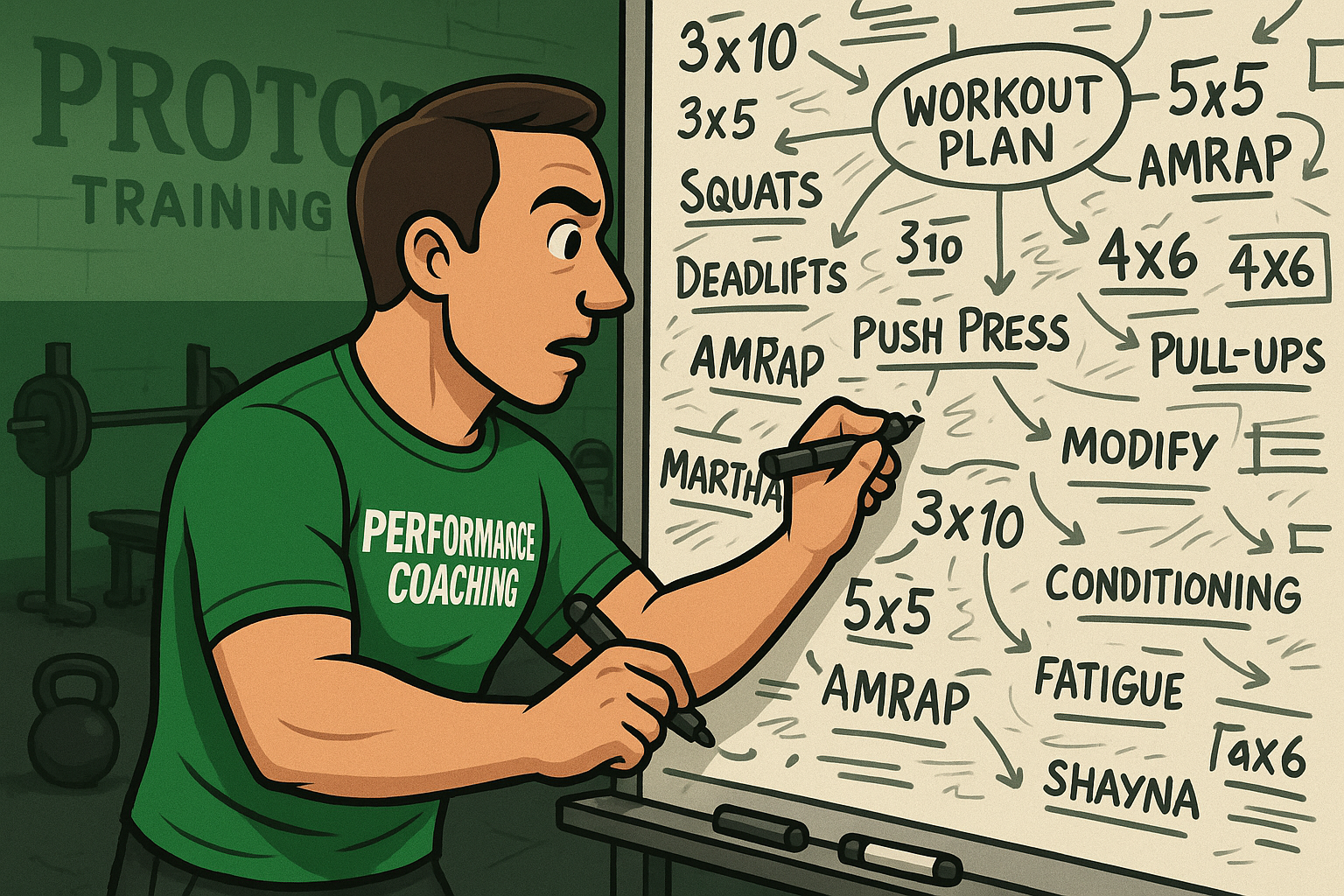Should Pre-Teen / Teen Athletes Train During the Season? Let’s Talk About It
March 23, 2025
Should Pre-Teen Athletes Train During the Season? Let’s Talk About It

“Can pre-teen and teen athletes really make improvements as the season goes on?”
That’s a question I get all the time. And the answer is simple:
Absolutely. But… they may not if all they’re doing is playing their sport.
Wait, Isn’t Playing Enough?
It’s not that playing their sport isn’t valuable—it’s hugely important! That’s where kids compete, have fun, and apply what they’ve learned.
But here’s the kicker: it’s not where kids build new skills. It’s not where they improve movement mechanics, body control, or physical literacy. That happens in training. Playing their sport is the test. Training is the homework.
So What Kind of Training Are We Talking About?
I’m not saying your 10-year-old needs a lifting program or 5 a.m. workouts. I’m talking about focused, age-appropriate athletic development. Here’s what to look for:
• Balance
• Coordination
• Strength through movement
• Core control
• Focus and body awareness
• Drills that challenge the athlete as a whole, not just as a soccer or baseball player.
But Isn’t That What Practice Is For?
In theory, yes! But let’s be honest—most practices during the season are all about preparing for the next game. Coaches focus on tactics, plays, and who’s starting Saturday. That’s not a knock on coaches—they’re doing their job! But this focus often means your child’s individual development takes a back seat.
Won’t Kids Burn Out If We Add More?
Only if it’s the wrong type of more. The right kind of training isn’t exhausting—it’s energizing! It builds confidence and helps kids feel stronger, more in control, and less likely to get hurt. We’re not adding stress. We’re adding support. I have had a few parents share with me that when their athlete goes to practices after LTAD
they play their best. Thats because there is a difference between a "workout" and a training session. LTAD isn't designed to put the athletes through a tough workout. Its a training session just like one of their practices for their sport it the goal is just a little different, its to make them a better athlete.
So What Should I Do As a Parent?
Look for a training environment that focuses on movement quality, fun challenges, and coaching that understands how kids learn. Keep it consistent, even during the season. We offer a few at Prototype thought our Youth Fundamentals
classes and LTAD (Long Term Athletic Development)
classes.
And most importantly: Don’t assume playing their sport is enough. Because your athlete has more potential than what shows up on game day—and training is what unlocks it.
Engaging your pre-teen / Teen in focused training can make a world of difference! It’s all about balancing play with the right kind of development. So get out there, find that perfect training environment, and watch your young athlete thrive!
You can reach me with any questions @ steve@prototypetraining.com
Steve Cimino
Director of Youth Development
Prototype Training Systems
Previous Blogs

Yesterday was a great reminder of what a little friendly competition can do. We set up a simple 1-v-1 game: kids had to sprint, tap two cones, and race back to knock over a foam roller. Nothing fancy, just movement, focus, and a clear goal. But something cool happened. The second it became head-to-head, the energy shifted. Kids were locked in. They ran harder. They pushed themselves—not because they were told to, but because someone else was giving it their all too. Even the kids watching got invested—shouting encouragement, clapping for effort, reacting to every close finish. That sense of shared experience, of community rooted in challenge, is exactly what youth development should be about. It was a perfect example of how competition, even in its simplest form, can bring out motivation and effort . Not for a prize, but just for the challenge of it. More Than a Game: The Real Value of Friendly Competition In today’s world of participation medals and well-meaning “everyone wins” culture, it’s easy to misunderstand the role of competition. But when designed thoughtfully and guided with intention, competition doesn’t diminish self-worth—it enhances it. According to a 2019 study published in Frontiers in Psychology, structured competition can lead to higher intrinsic motivation, improved self-esteem, and a greater sense of personal accomplishment in youth participants (Bonfiglio et al., 2019). When kids compete, they learn that effort yields results. They learn how to win graciously—and perhaps more importantly—how to lose with resilience. They discover the value of hard work, discipline, and focus. They get to ask: “How fast can I be?” “How far can I push myself?” And, “What happens if I try just a little harder?” The Pride in Performance There’s a moment—right after a child finishes a race, or a round of a competitive game—where they catch their breath, stand a little taller, and smile. Whether they won or not is almost secondary. What matters is that they showed up and gave their best effort. That sense of pride? That’s not vanity. It’s the birth of confidence. And when that confidence is built through movement, through play, through sweating and trying and doing—it sticks. Not just in sport, but in school, at home, in friendships, and beyond. Final Thoughts Competition, when framed the right way, helps kids build confidence, stay motivated, and take pride in their effort. It’s not about winning — it’s about showing up, trying hard, and learning what they’re capable of. At its best, competition doesn’t separate kids — it brings them together, showing them how to push themselves while supporting each other along the way.

It’s no secret — we’re living in a world that feels increasingly volatile. Financial markets are unpredictable. The news cycle is overwhelming, social media noise is constant and it's harder and harder to sort through what's real and what's not. And when uncertainty rises, it's human nature for people to start making emotional decisions. Being in the fitness industry for close to 20 years and operating Prototype Training Systems since 2012, I've seen this happen time and time again — not just in the stock market — but in our gym community. When we feel stressed financially (and trust me, i've been there as an entrepreneur), one of the first things they often cut is their investment in their health. Cancelling the gym. Skipping workouts. Pressing pause on coaching or training. We can go into a frenzy of what needs to be prioritized and what doesn't, and often it's rooted in anxiety and fear. On the surface, it makes sense: "Let me tighten up my budget until things feel safer." But here’s the truth — it’s completely backwards . Emotional Decisions Rarely Lead to Positive Outcomes In a recent conversation I had with Brendan Sheehan, founder of Waymark Wealth Management (and one of our community business sponsors), we talked about this exact thing. As we are facing that uncertainty now in the market. Click the link to listen to the full podcast! Brendan was sharing when the market drops — whether it’s 5%, 10%, or more — people panic. But the data shows this happens all the time. He shared that "the m arket dips of 5-10% happens three times a year on average." Dips of 10-20%? Happens at least once a year. It’s not unusual — but when emotions take over, we make decisions that can hurt long-term. And this same pattern can show up in health and fitness. Your Health is Not a Luxury — It’s Essential Let’s be real — when life feels hard, stressful, or uncertain, you need your health more than ever. Exercise isn't just about aesthetics or performance — it's your anchor. Working out helps you regulate stress, sleep better, stay clear-headed, and avoid the emotional roller coaster that uncertainty brings. Cutting your health investments when things get tough is like saying: "The storm is coming... so I'm going to throw away my umbrella." It doesn’t make sense, but this what happens when emotions are high, it's REALLY hard to make logical decisions. We can get into a binary mode of thinking... then we take action which often isn't fully thought out. The Vicious Cycle: Stress → Cut Health → Decline → Regret Here's the common pattern we’ve seen over the years... and I would argue is common in every gym across the country... Things get tough financially or emotionally. We go into "panic" mode... start to take action. People cut their gym membership or stop exercising. Maybe you over narrate it's not worth it... maybe you over narrate I'll just do it on my own and change my entire routine... or maybe you think it will only be very short term. Then, stress increases. Energy drops. Sleep gets worse. Health declines — physically and mentally. Time passes... regret kicks in. "I wish I hadn't stopped. Now it’s even harder to get back ." Sound familiar? It's a vicious cycle and REALLY hard to break. We’ve seen it over and over — and we’ve helped people climb back out of it. But we’d rather help you avoid that spiral in the first place. What Should You Do Instead? Have faith in your routine and take a second to pause before making a major life change. Double down on habits that ground you — like fitness, community, and nutrition. Talk to a coach. Share what’s stressing you out — we’re here to help. Be curious — ask questions before making big decisions. Remember: health is not the problem — it’s the solution. Final Thought: Uncertainty will always be part of life. Markets go up and down. Challenges will come and go. But the best investment you can make — in any economy — is in your physical and mental well-being. At Prototype Training Systems, we’re more than a gym. We’re a community that helps people stay grounded, consistent, and healthy — no matter what’s happening outside our walls. If you’re feeling the pull to cut your health in hard times — let’s talk. Book a Free Goal Review Session with a coach... seriously, we're here to help. We’ll help you navigate uncertainty the right way — by staying strong, staying consistent, and investing in yourself.
Climb to New Heights
Prototype Training Systems is more than a gym - it is a lifestyle. Join us today!


